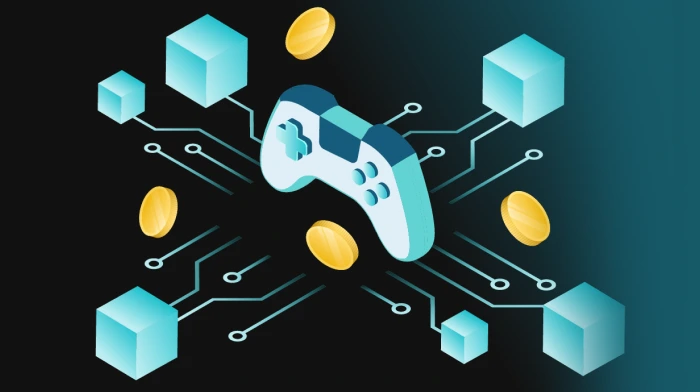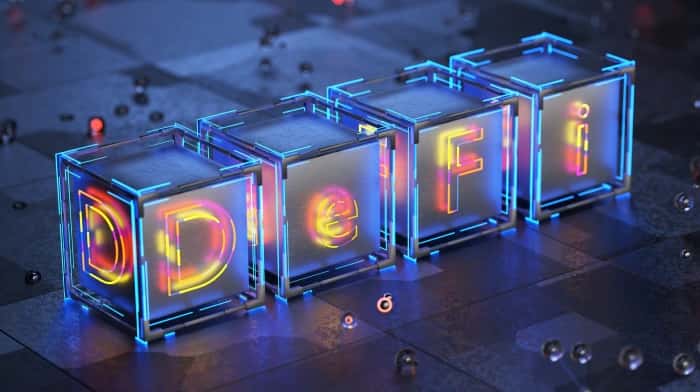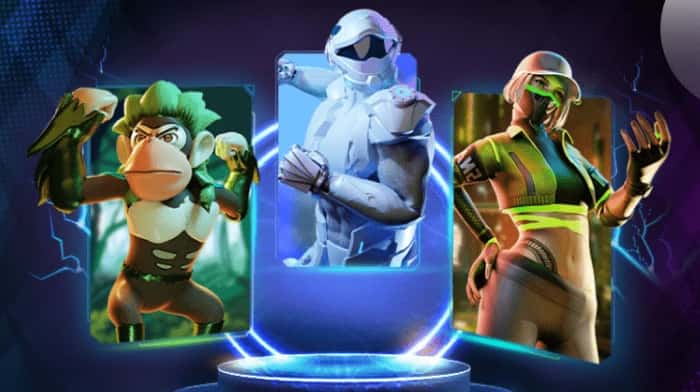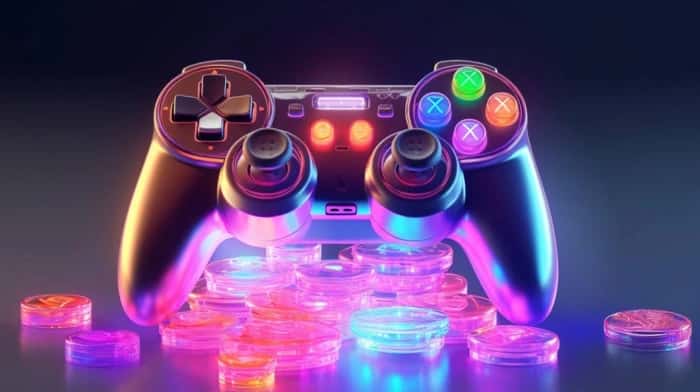
Introduction
Decentralized finance or DeFi is changing the way we think about the blockchain world. It's a way of doing things where financial services and apps are built on blockchains. This means people can make transactions without needing middlemen like banks.
In the world of blockchain games, DeFi is used to bring these financial services into the game itself. Blockchain games are an exciting area using this technology to create innovative gaming experiences. It's a field that's moving fast with new ideas and developments emerging all the time.
By combining blockchain and gaming, developers can create new kinds of games that were not possible before. This intersection of finance and gaming is what makes DeFi so important in the blockchain game development space.
The Impact of DeFi on Blockchain Gaming
Blockchain networks bring a lot to the table when it comes to creating, trading and owning in-game assets like those Non-Fungible Tokens. Games are using this technology to let players truly own their digital goods thanks to cryptocurrencies and smart contracts that make the in-game economy run smoothly.
The impact of decentralized finance on game development is huge. It adds a whole new layer of possibilities:
- •Lending and borrowing
- •Trading capabilities
- •Yield farming opportunities
- •Direct integration into gameplay
This integration significantly boosts the in-game economy, giving players innovative ways to engage with digital assets.
How DeFi Enhances Blockchain Game Ecosystems
DeFi's impact on blockchain games is pretty straightforward. It helps create the foundation, rules and automated agreements that make financial systems work within games.
DeFi is changing the way we think about blockchain gaming by making in-game economies more realistic through cryptocurrencies. This means that the items you can buy or earn in a game can be worth something in the real world.
With DeFi, players have more control over their digital assets and can even trade them with each other, unlike traditional gaming where game currencies are controlled by the developers.
Smart Contracts and Asset Management
Smart contracts govern how in-game assets are traded. These smart contracts are like automated rules that make sure everything runs smoothly and fairly. They replace central authority, so players can trust that their transactions will be secure and honest.
By making asset transactions automatic and transparent, this improvement helps build trust and security among players while cutting out middlemen.
Player Empowerment Through Governance Tokens
In the world of gaming, DeFi is bringing about a new era of player empowerment by introducing governance tokens that give gamers a say in how their favorite games are run and developed.
This means that players can now have a voice in shaping the direction of a game, which can foster a sense of ownership and make them more likely to stay engaged.
Cross-Game Interoperability
What's really exciting is that DeFi could let games talk to each other in a way they never could before. Imagine being able to use something you earned in one game in another one. It's like having a universal ticket that gets you access to a whole new world of possibilities.
This could totally change the way we think about games and how we play them, creating interconnected gaming experiences.
Integration of DeFi and Blockchain Games
Cryptocurrency Integration in Gaming
Game developers are starting to use cryptocurrencies as a way for players to buy and sell things in games. This means players can move money around in new ways without needing a central authority.
It's especially helpful for people in developing countries who want to participate, as it makes it easier for them to buy and sell things in games.
NFTs and Asset Ownership
Non-Fungible Tokens or NFTs have become a major part of developing games on the blockchain. These unique digital assets are closely tied to the idea of decentralized finance, which ensures that players have true ownership of the items they collect in games.
Players can buy and sell NFTs on decentralized markets that aren't controlled by a single entity, which helps keep everything secure and transparent.
Decentralized Exchanges for Gaming Assets
Decentralized exchanges are really important for the way people own assets in virtual worlds powered by DeFi technology. These exchanges let people trade in-game assets, NFTs and other digital goods without having to go through a middleman.
Players can swap assets with each other directly, which means:
- •Lower transaction fees
- •Easier access to needed assets
- •Direct peer-to-peer trading
Play-to-Earn Economic Models
In some blockchain games, the financial models are designed to reward players for their participation. This is often referred to as a play-to-earn system, where players can earn real-world value rewards for playing the game.
Games offer tokens as rewards for playing that can be used in the game or swapped on DeFi platforms. This setup gives players incentive to keep playing as they get something valuable back for the time they invest.
Benefits of DeFi Integration in Blockchain Gaming
Enhanced Security and Transparency
When it comes to security and transparency, there are significant benefits. Transactions become much more trustworthy because smart contracts take over the governance of transactions instead of relying on central authorities.
This ensures that buying and selling assets happens without anyone cheating or manipulating the system, creating a fair and open environment for transactions.
DeFi vs Traditional Gaming Comparison
| Aspect | Traditional Gaming | DeFi Gaming |
|---|---|---|
| Asset Ownership | Game-controlled | Player-controlled |
| Transaction Fees | High (middlemen) | Lower (direct) |
| Transparency | Limited | Full blockchain visibility |
| Cross-game Assets | Impossible | Enabled through standards |
Lower Transaction Costs
One of the major advantages of using DeFi in blockchain games is that it helps cut down on transaction costs. In traditional gaming, there are usually middlemen like banks or payment processors that charge fees to move money or assets around.
DeFi changes this by allowing players to deal directly with each other without having to go through these intermediaries, making it cheaper and easier to buy, sell and trade in-game items or tokens.
Fractional Ownership Opportunities
DeFi makes it possible for players to own just a fraction of an in-game asset, which can be especially useful for really expensive items. This way, players can team up and invest in something that would normally be out of their budget.
This creates new possibilities for gamers to access valuable items without having to buy them outright, which can really shake up the virtual economies of games.
Real-World Financial Gains
The world of blockchain games with DeFi elements goes beyond providing entertainment. These games can actually put money in players' pockets. By selling or trading in-game assets and cryptocurrencies on exchanges, players can turn their gaming achievements into real financial gains.
Challenges and Considerations
Regulatory Compliance Issues
One major challenge is making sure everything is compliant with regulations. When you combine DeFi and blockchain games, it raises questions about how to follow the rules, as laws and regulations around blockchain and DeFi are constantly changing worldwide.
Companies need to stay on top of legal requirements and be aware of the laws in the regions where they operate as well as those where their players live.
Maintaining compliance with Anti-Money Laundering (AML) and Know Your Customer (KYC) regulations is particularly challenging in decentralized systems where privacy and security must be balanced.
Scalability and Network Congestion
Take blockchain networks like Ethereum, which is widely used for DeFi applications and blockchain games - they often get bogged down when the network becomes congested. Transactions start to slow down and fees can get pretty steep.
Because of this, developers are looking into Layer 2 solutions and other blockchains that might be able to handle more traffic while maintaining smooth gaming experiences.
User Education and Adoption
One major hurdle is making sure gamers have a solid grasp of what's going on. DeFi can be overwhelming for those who are new to it, so it's up to game developers to educate their players and bring them up to speed.
The user experience needs to be intuitive so people can pick it up without hassle. If developers can get that right, it'll be much easier to get more people interested in DeFi and blockchain games.
Future Developments and Trends
Layer 2 Solutions and Scaling
As more people get into blockchain gaming, the underlying technology can get bogged down. Layer 2 solutions can help take some of the pressure off the main blockchain by using side chains or by processing some data outside of the main chain.
Layer 2 solutions offer several benefits:
- •Speed up transaction processing
- •Cut down on network congestion
- •Make DeFi applications more accessible
- •Enable seamless microtransactions
- •Maintain security and decentralization
Cross-Chain Integration
A new trend is emerging in DeFi and blockchain games: the ability to move assets and data smoothly between different blockchains. This cross-chain integration is a big deal because it lets people play games together and exchange in-game assets no matter what platform they're on.
Cross-chain integration makes in-game assets more valuable and useful. For instance, imagine being able to use an NFT you earned in one game in a completely different game on another blockchain.
Metaverse Development and DeFi
The metaverse - a shared virtual space - is rapidly emerging as the next big thing in the gaming industry. It's not just about individual games anymore, but about creating a whole universe of experiences that bring together various blockchain games, social interactions and virtual worlds.
By taking this approach, metaverse development is opening up new possibilities for DeFi, allowing it to grow and flourish on a massive scale. Players can now move their assets and engage in financial activities freely across different virtual spaces within these metaverses.
Interconnected Virtual Economies
The marriage of virtual economies and DeFi ecosystems is a major force driving metaverse development forward. In-game items, currencies and tokens are no longer just confined to their original gaming worlds - they can now serve as assets in the broader DeFi space.
This opens up new opportunities for:
- •Liquidity provision
- •Yield farming across games
- •Decentralized finance that transcends gaming boundaries
- •Cross-platform asset utilization
Conclusion
Combining decentralized finance with blockchain game development has opened up a new world of possibilities in the gaming industry, blending two innovative technologies in a way that's never been seen before.
DeFi is transforming the gaming experience from passive consumption to active participation in shaping game worlds. This means players can earn real rewards from their achievements, which is a total game changer.
As the blockchain gaming industry continues growing and evolving, it's incorporating DeFi principles to make games more engaging and rewarding while creating a level playing field where everyone can benefit regardless of where they're from.
This shift represents what the future of gaming looks like: a space where entertainment and financial opportunities come together in unprecedented ways.
Ready to Build the Future of Gaming?
Transform your gaming vision with cutting-edge DeFi integration. Our expert team specializes in smart contract development, NFT tokenization, and decentralized gaming ecosystems that empower players and create new revenue streams.


